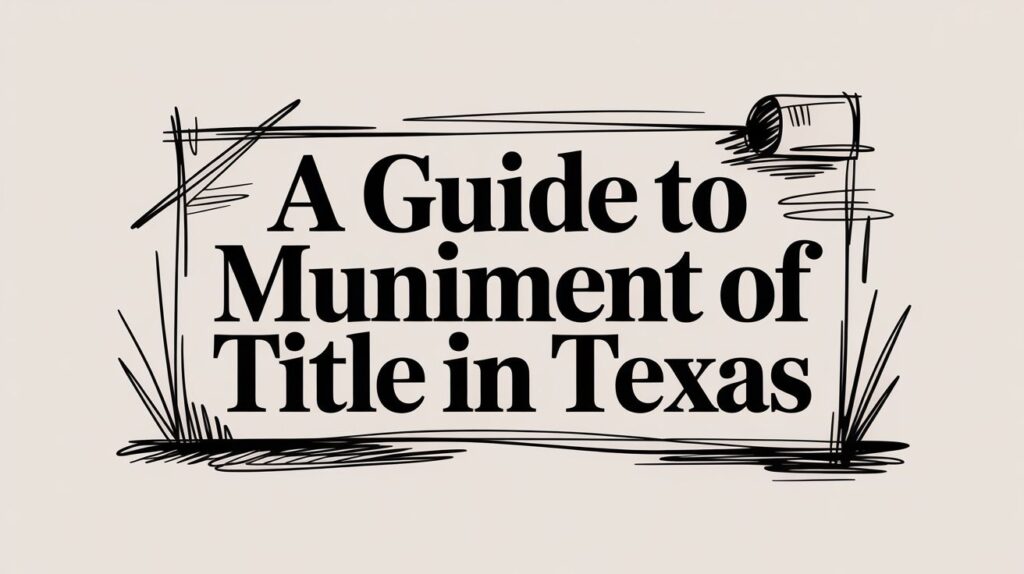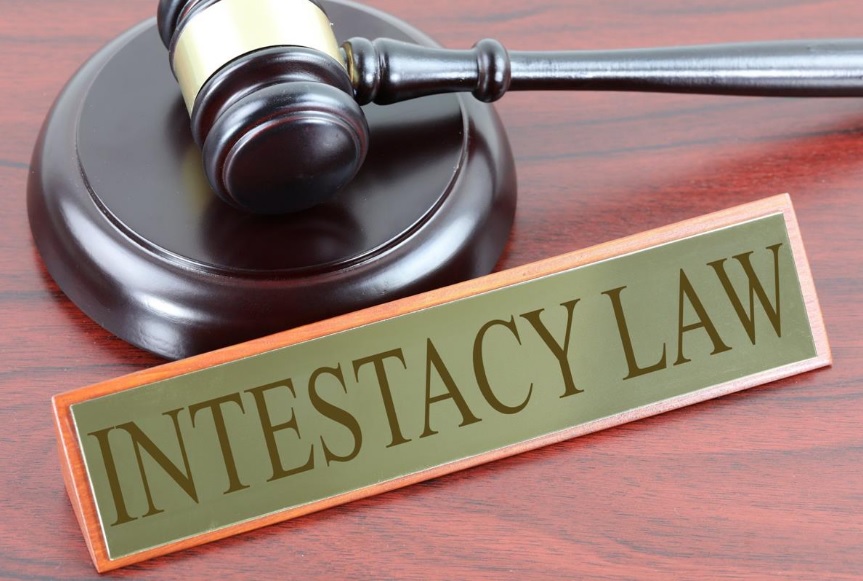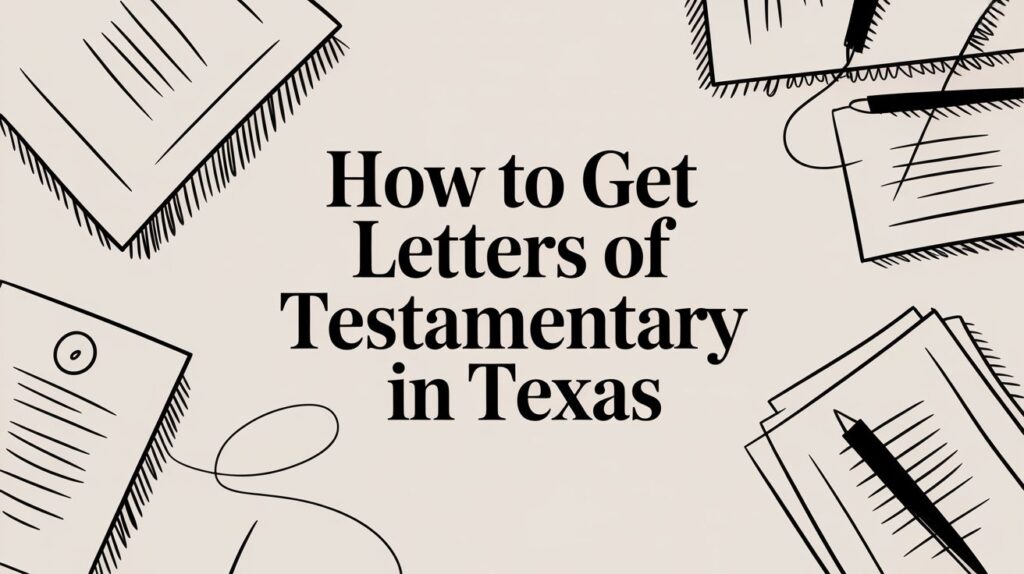Many Texans believe that once they have a valid will, their estate will avoid probate entirely. The assumption is understandable—after all, wills are designed to direct where property goes after death. But in reality, a will does not automatically bypass probate. In fact, many estates still pass through the probate process even when a will exists and appears clear.
Probate is the court-supervised process of settling a person’s estate after death. It involves proving the validity of a will, identifying assets, paying debts, and distributing property to beneficiaries. While Texas law provides some streamlined procedures to expedite the probate process and make it less expensive than in other states, the process is still necessary in many cases. Understanding why a will alone may not be enough helps families prepare for what lies ahead and avoid surprises during a difficult time.
Why Probate Exists Even When There’s a Will
The main reason probate exists is to protect both beneficiaries and creditors. A will is essentially a set of instructions, but the court must confirm that the document is valid and enforceable. Without oversight, disputes could arise over authenticity, fairness, or debts left unpaid. Probate ensures an orderly transition of property, particularly when the estate includes real property or other assets that require a clear legal title.

Texas law allows for independent administration, which can make probate relatively smooth. An executor can act with minimal court supervision once appointed. But the appointment itself—and the official recognition of the will—still requires court involvement.
The reality is that even with the best-prepared wills, certain issues trigger the need for probate. Families who expect to transfer property seamlessly without court involvement often find themselves drawn into the process because of circumstances beyond their control.
Common Reasons Property Still Goes Through Probate in Texas
One of the most frequent reasons is that assets are titled solely in the decedent’s name. If a house, car, or bank account does not have a joint owner with right of survivorship or a named beneficiary, the asset cannot pass automatically. The court must intervene to transfer ownership.
Disputes over the will also drive probate. If family members believe the will was created under undue influence, fraud, or lack of capacity, they can contest it. The court then has to determine whether the document is valid. Even a single contesting relative can extend the process for months or years.
Creditors are another factor. Probate provides a formal way to notify creditors and settle outstanding debts. Even if beneficiaries are eager to distribute property, the law requires debts to be paid first. Without probate, creditors might later challenge transfers, leading to legal complications for heirs.
Some estates involve complex or unique assets—such as oil and gas royalties, family businesses, or mineral rights—that cannot easily transfer outside probate. These assets require valuation, formal documentation, and, in many cases, court oversight to ensure fairness among heirs.
Lastly, even the best-drafted wills sometimes leave gaps. If the will fails to account for certain property, uses vague language, or names beneficiaries who have already died, probate becomes necessary to resolve the issues.
Real Property and Probate Complications

Real estate is one of the most common assets that pushes families into probate. Texas law requires a clear chain of title to transfer property ownership. If the deceased was the sole owner of a home, land, or rental property, the new owner cannot simply record the will and move in. The probate court must authorize the transfer so title records remain accurate.
This issue extends to rural land, oil-rich tracts, and inherited properties that may have multiple heirs. Without probate, ownership becomes clouded, making it difficult to sell or borrow against the property. Probate, therefore, protects not only heirs but also future buyers and lenders who need certainty in the chain of title.
Even with a will, disputes can arise about property boundaries, mineral rights, or whether the land was truly separate or community property. These disputes add another layer of complexity that probate must resolve.
Debts, Creditors, and the Role of Probate
Debt is another area where probate plays a crucial role. Texas law requires that debts be paid before heirs receive their inheritance. The probate process ensures that creditors receive notice and an opportunity to present claims. This prevents heirs from facing lawsuits years later for unpaid obligations.
In some cases, creditors may force an estate into probate by filing claims. For example, a hospital bill, tax debt, or mortgage lender might trigger the process if the estate has significant liabilities. Executors must carefully navigate these claims to protect the estate while fulfilling legal duties.
This function of probate highlights why even financially stable families often encounter it. Unless every debt is accounted for and directly tied to an asset with a named beneficiary, probate may be unavoidable.
Contested Wills and Family Disputes
Even when a will appears valid, probate becomes necessary if family members contest its terms. Disputes often center on accusations of undue influence, where one relative claims the deceased was manipulated. Other times, disagreements arise over capacity—whether the person was of sound mind when the will was signed.

Probate provides a forum for these disputes to be resolved under the supervision of a judge. Without it, families could be left in limbo, with competing claims to property and no legal resolution.
These disputes are more common in blended families, where children from prior marriages may feel overlooked or unfairly treated. They also arise in situations where the will drastically departs from what heirs expected. Probate ensures that the law, not family conflict, decides the outcome.
Outdated or Poorly Drafted Wills
A will that fails to reflect current circumstances almost always leads to probate complications. If the document names beneficiaries who have passed away, includes property that no longer exists, or omits recently acquired assets, the court must step in to interpret the decedent’s intent.
Poor drafting can also create confusion. Ambiguous language, missing signatures, or failure to follow Texas’s strict formalities can render a will partially or wholly invalid. Probate is the only way to sort out these problems and distribute property fairly.
This is why estate planning is not a one-time task. Updating a will after major life changes—such as marriage, divorce, births, deaths, or significant purchases—is essential to avoid probate disputes.
When Probate Might Be Avoided
Although probate is common, there are ways to reduce or bypass it. Assets with beneficiary designations, like life insurance policies, retirement accounts, and payable-on-death bank accounts, transfer automatically. Similarly, jointly owned property with right of survivorship passes outside probate.
Living trusts also provide a mechanism to avoid probate. By placing assets into a trust, the owner can ensure direct transfer to beneficiaries without court oversight. However, this requires planning and proper funding of the trust during life.
Texas also allows for small estate affidavits in limited situations. If the estate is valued below a certain threshold and meets other requirements, heirs may avoid full probate. Still, for most families with real property or complex assets, probate remains necessary even with a valid will.
Why Planning Beyond a Will Matters
The common theme is that a will alone does not guarantee a probate-free transfer of property. Instead, it is one tool in a broader estate plan. Texans who want to minimize probate should combine wills with other strategies, such as trusts, updated beneficiary designations, and clear titling of property.
Families who assume a will is enough often discover too late that probate still applies. By planning and understanding the limits of a will, individuals can save their loved ones time, money, and stress. Probate serves an important function, but it does not need to be overwhelming. With proper planning, families can streamline the process and protect their assets while ensuring their wishes are honored.
Conclusion
When it comes to estate planning in Texas, a will is essential but not sufficient. Property often still passes through probate because of sole ownership, creditor claims, disputes, or gaps in the will itself. Real estate, debts, contested documents, and outdated provisions all contribute to the need for court oversight.
Probate ensures fairness, clarity, and compliance with the law. While it may seem like a burden, it protects heirs, creditors, and future property owners alike. Texans who want to limit probate should think beyond just a will, embracing trusts, beneficiary designations, and other planning tools. Ultimately, a will provides guidance, but probate provides authority. Understanding that distinction helps families prepare for the realities of settling an estate in Texas. For many, the lesson is clear: having a will is only the beginning of a sound estate plan.








